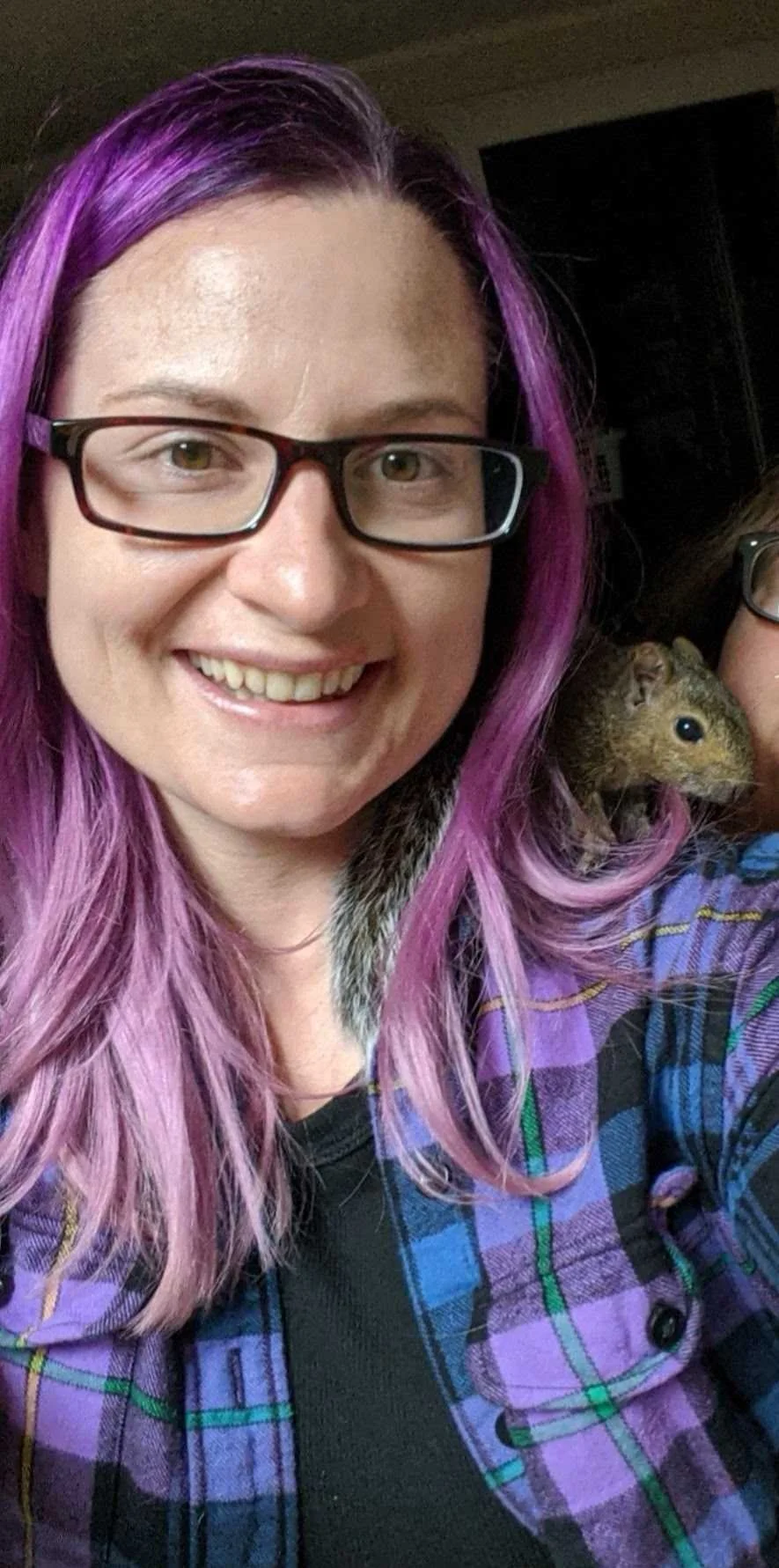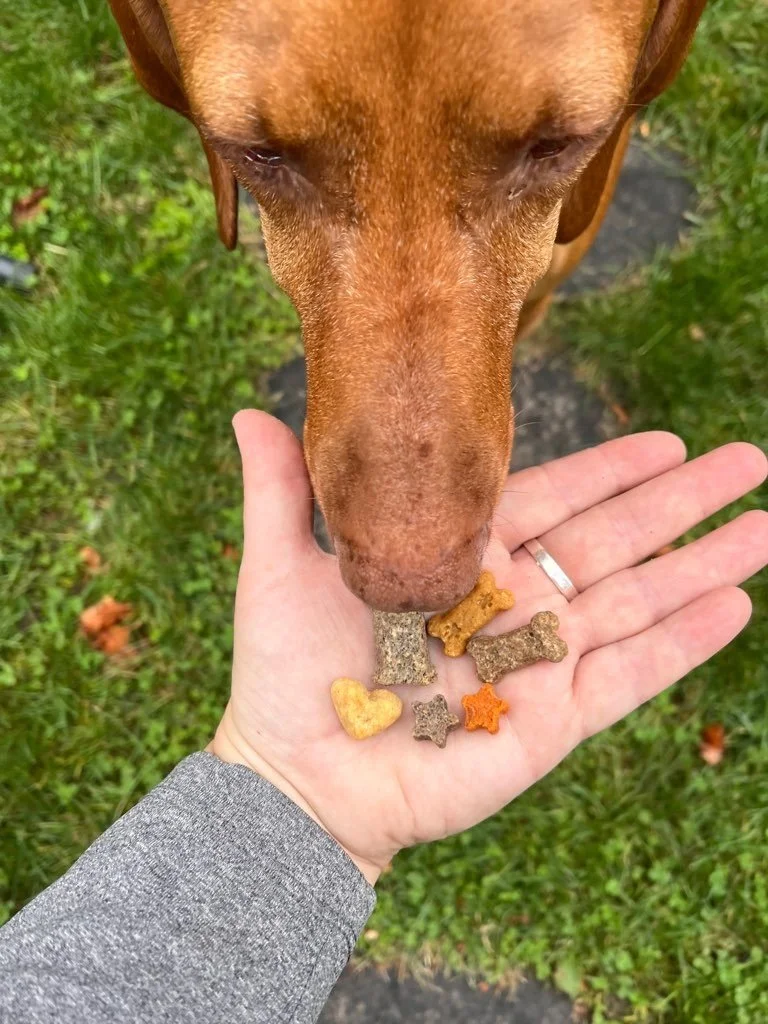Marsha & Walter use the bucket game to work on cooperative care.
Hi, I’m Marsha Zay, CPDT - KA, i’m part of the Off Leash MKE team, and I’m excited to be contributing to the Unleashed blog with some of my musings on dogs and dog training! I wasn’t quite sure where I should start with this topic so I figured I’d start the conversation with a part of dog training that I am especially passionate about: cooperative care.
Marsha Zay - CPDT
What is Cooperative Care?
Cooperative care is an approach to training that focuses on building the dog’s willingness to participate in procedures that are necessary for their health and well-being. This includes activities like nail trimming, teeth brushing, ear cleaning, and handling for veterinary exams. Many dogs find these activities stressful and scary. However, since they are an important part of keeping our dogs healthy, we focus more on the end goal of completing the task rather than how we can accommodate our dogs and alleviate as much stress as we can during the process.
The Goal of Cooperative Care
The goal of cooperative care training is to help dogs feel more comfortable and safe during these procedures. When dogs are willing to participate in necessary procedures, it is easier to provide them with the care they need, reducing the risk of medical issues going undetected or untreated. Additionally, what I like most about cooperative care training is, it can help to strengthen the bond between dogs and their owners, as it requires trust and communication between them.
What does cooperative care training look like?
First, you need to establish a means of communication so your dog can signal to you when they are comfortable with handling and when they need you to pause or take a break. For my own dog, I used an exercise developed by Chirag Patel called the Bucket Game and taught him to focus on a mug filled with treats. In this exercise, my dog focusing on the mug is the signal to start handling. If he looks away from the mug, that is the signal to pause/stop. Once my dog understood the game, I was able to use it as a way to gauge his comfort level as I worked up to trimming his nails.
Giving a dog agency to opt out of an activity they are uncomfortable with can be really empowering for them. And learning to listen to your dog in these situations is huge for building trust. Trust is definitely a key component to cooperative care. Once you have established a trusting relationship with good communication, your dog may be more willing to push their comfort zone since they now have more say in the matter and more control in the situation.





Discover the benefits and practical applications of choice-based dog training methods, also known as positive reinforcement or force-free training. Join us in exploring how giving your furry friend choices during training can lead to stronger skills and a more fulfilling and harmonious relationship for both you and your pup.